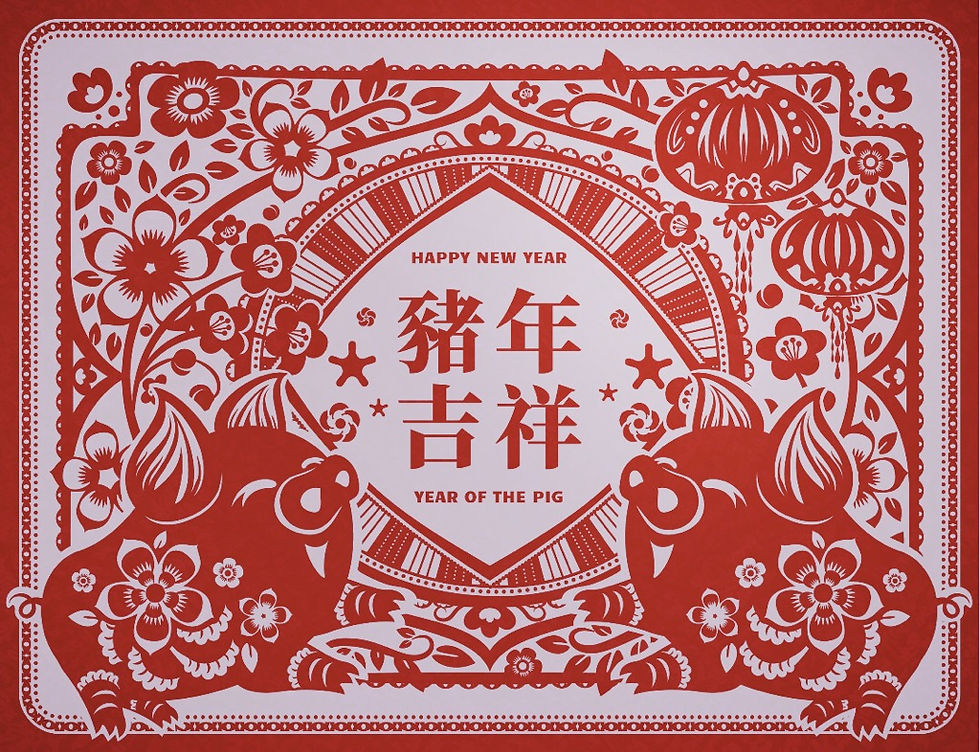Chinese Paper-cutting - 剪纸
- Bilingualbees

- Jan 12, 2019
- 1 min read
Chinese paper-cutting (剪纸 jiǎn zhǐ) originated from traditional ancestral and deity worship, and it is one of the oldest and most popular traditions in Chinese culture. According to archaeological records, it originates from the 6th century, although some believe that its history can be traced as far back as 3 BC, long before paper was invented. At that time, people used other thin materials, such as leaves, silk or leather, to carve out hollow patterns.

Paper-cutting was not only a kind of handicraft, but also a means of artistic expression. Apart from using it as a decoration, it was also an aesthetic way to express hope, gratitude and other emotions. Even till today it is used to decorate doors, windows and walls to show happiness and a celebration of festivities. They liven up windows, mirrors and walls, in homes and are also used on presents or are given as gifts themselves. Chinese people will usually hang a paper-cutting of the word “福” (fú, meaning 'lucky') at the front doors during the Chinese New Year's Festival, in order to usher in “luck” for the New Year.
These days, the younger generation uses paper-cuts as a decoration on their stationary kits and books if they are not posting images of it on their social media.
If you are brave enough to take on the challenge today, here is a YouTube clip on how to make a Chinese Paper Cutting of the word “福”. Before we leave you with that, we would like wish you a happy and prosperous new year!




Comments